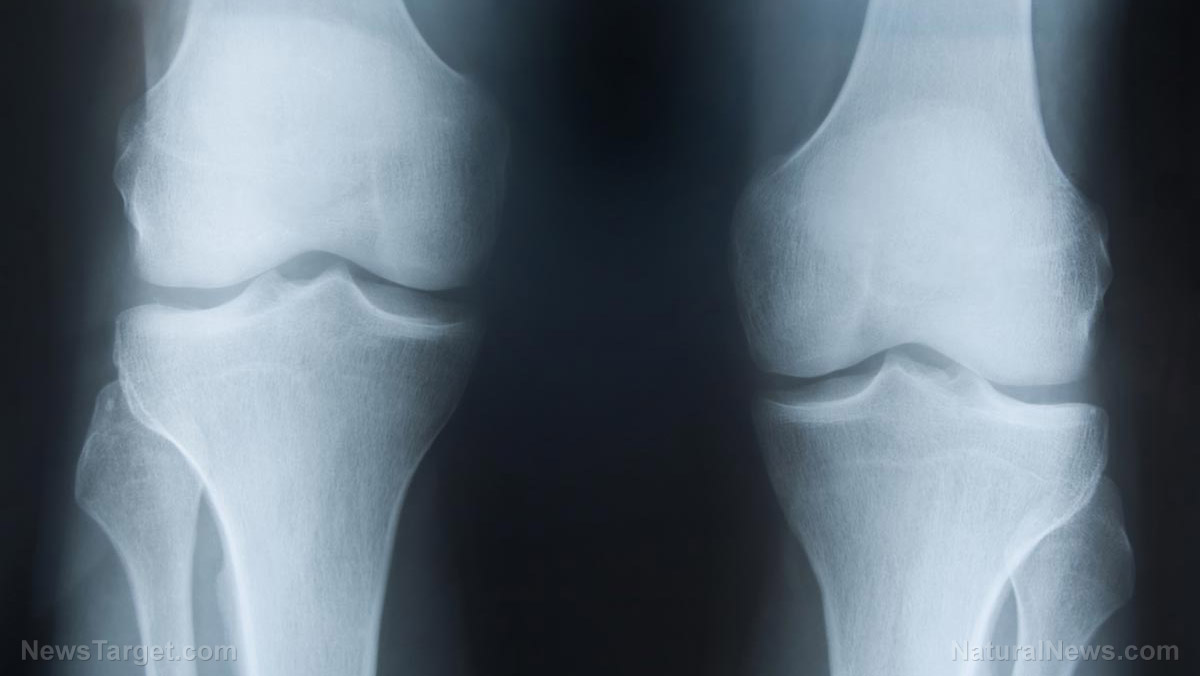Prevent bone loss with vitamin C
02/25/2019 / By Ellaine Castillo

It’s a well-known fact that many older adults suffer from bone loss or osteoporosis. But what many people don’t realize is that it can happen to them, despite their age. In fact, the National Osteoporosis Foundation reports that over 54 million Americans suffer from, or are at risk of, osteoporosis. This can be caused either by excessive bone loss or insufficient production of bones mass. For some people, both factors may even be present.
Having weak bones can take a toll on the quality of a person’s life. It can reduce mobility and increase the risk of bone breakage. When bone loss becomes too severe, bones might even break just from bumping into something or straining, like when you sneeze. Over the years, people have gathered a lot of information regarding bone health and osteoporosis prevention. Unfortunately, most of it is wrong.
When it comes to bone loss, the most common misconception that people have is that calcium alone can solve this problem. This stems from findings that people with osteoporosis have calcium-deficient bones. Although this mineral is crucial for bone development, there are other problems that need to be addressed to prevent bone loss. One of these is oxidative stress, which occurs due to an imbalance in free radicals and antioxidants in the body. Studies have shown that vitamin C is crucial for preventing oxidative stress and bone loss. (Related: Supplemental calcium is the wrong approach to age-related bone loss.)
How does vitamin C improve bone strength
What many people don’t realize is that osteoporosis is scurvy of the bones, which is a symptom of vitamin C deficiency. This means that increasing your intake of this nutrient can promote the growth of new, healthy bone. Previous studies have shown that vitamin C supplements can improve bone density test results. But, unlike calcium, it produced strong, structurally sound bones and reduced the risk of fractures. This is possible because vitamin C plays an important role in the formation of bone’s structural matrix. It is involved in the production and cross-linking of collagen, as well as the development of non-collagen bone matrix proteins. It is also important for differentiating stem cells into bone cells and for regulating the cells that form collagen and cartilage.
A study from Mount Sinai School of Medicine was able to demonstrate the protective effects of vitamin C against osteoporosis in an animal model. The researchers showed that the mice that were supplemented with vitamin C avoided bone loss. These results were supported by findings published in the International Journal of Experimental Pathology. In this study, the researchers found that vitamin C deficiency caused failure of collagen synthesis. This resulted in symptoms of scurvy, such as spontaneous bone fractures.
More reasons to increase vitamin C intake
Increasing your intake of vitamin C can give you many other health benefits. Some examples of these include the following:
- Lower blood pressure — High blood pressure increases the risk of heart disease, which is the leading cause of death in the world. Taking vitamin C supplements has been shown to improve blood pressure. It works by relaxing the blood vessels.
- Improved immunity — Vitamin C is most commonly used for its ability to boost immunity. This nutrient stimulates the production of white blood cells that fight against infection. It also has potent antioxidant properties that protect the immune cells from highly reactive molecules.
- Lower risk of dementia — The potent anti-inflammatory and antioxidant properties of vitamin C are beneficial against dementia. It has also been associated with improved cognitive functions.
Read more news articles on the health benefits of vitamin C by visiting Nutrients.news.
Sources include:
Tagged Under: bone health, bone loss, Bones, natural remedies, nutrients, osteoporosis, prevention, vitamin C, vitamins, women's health




















